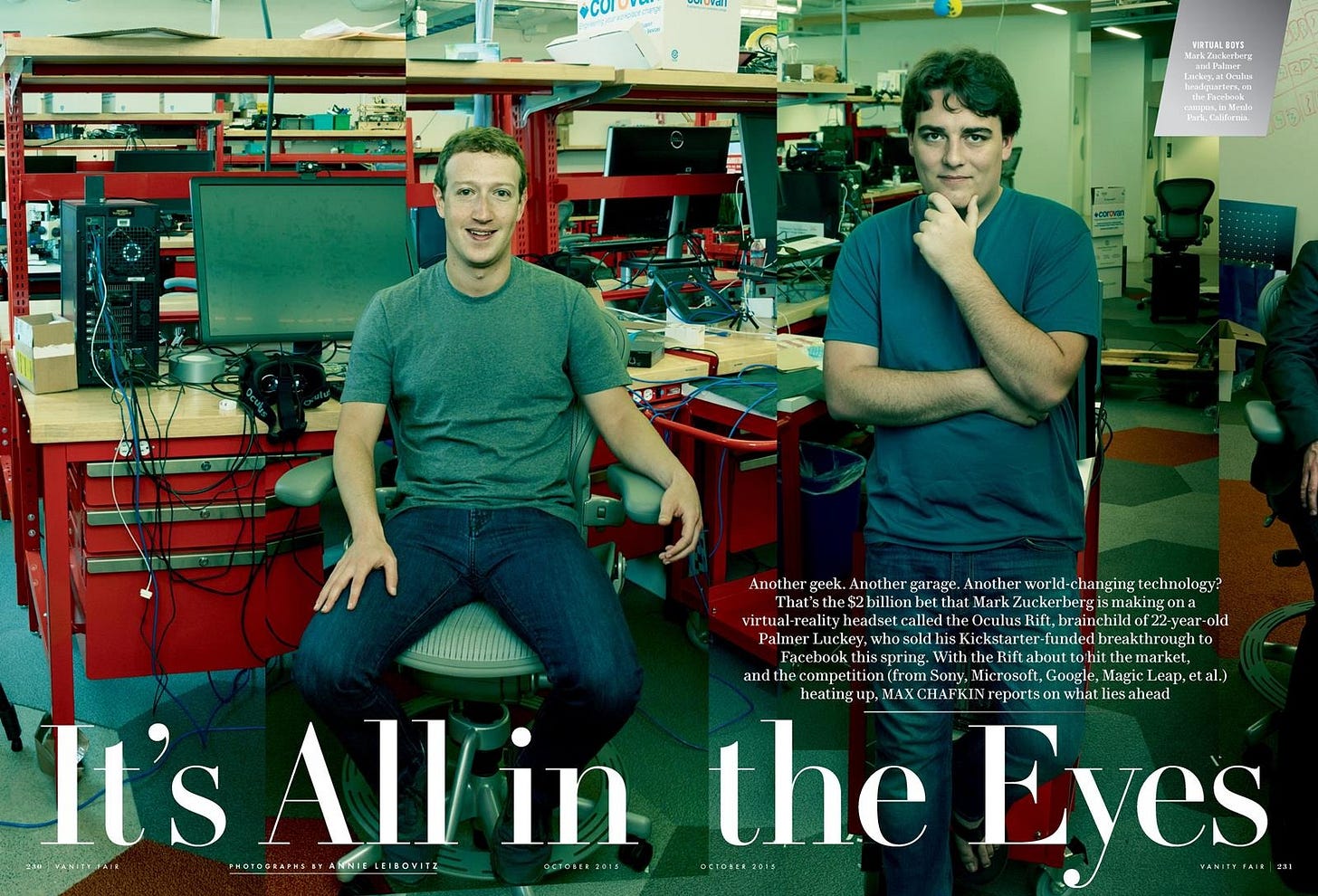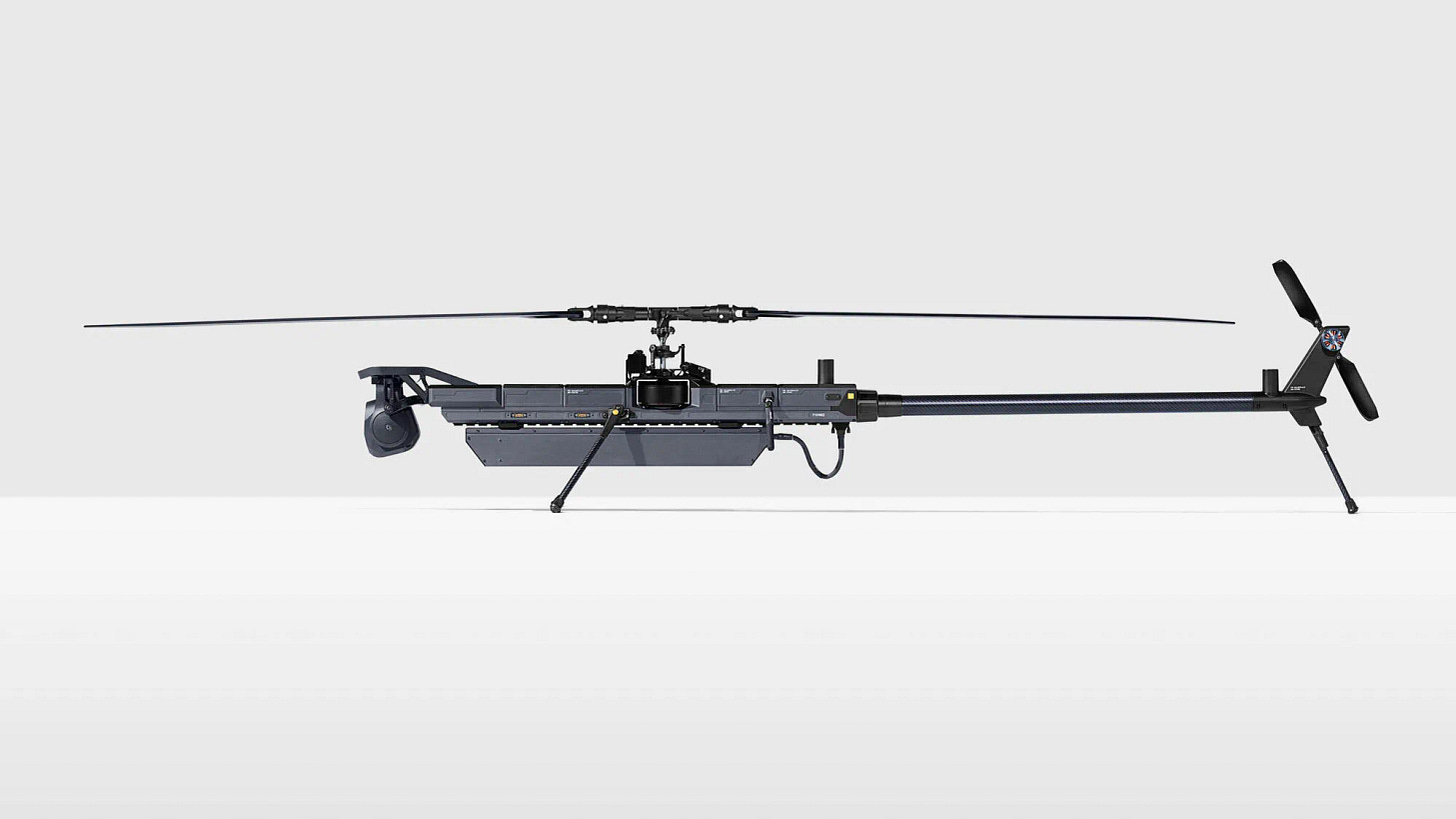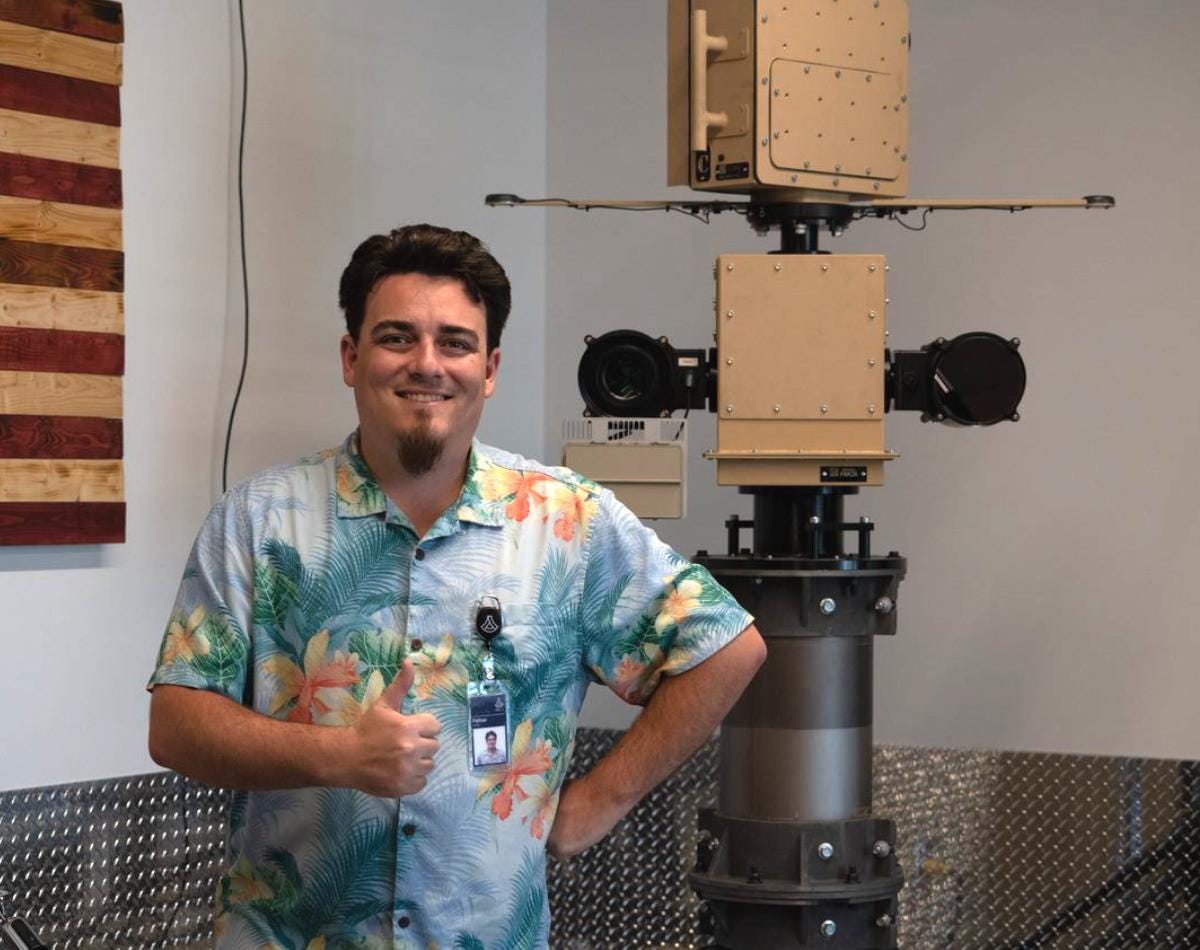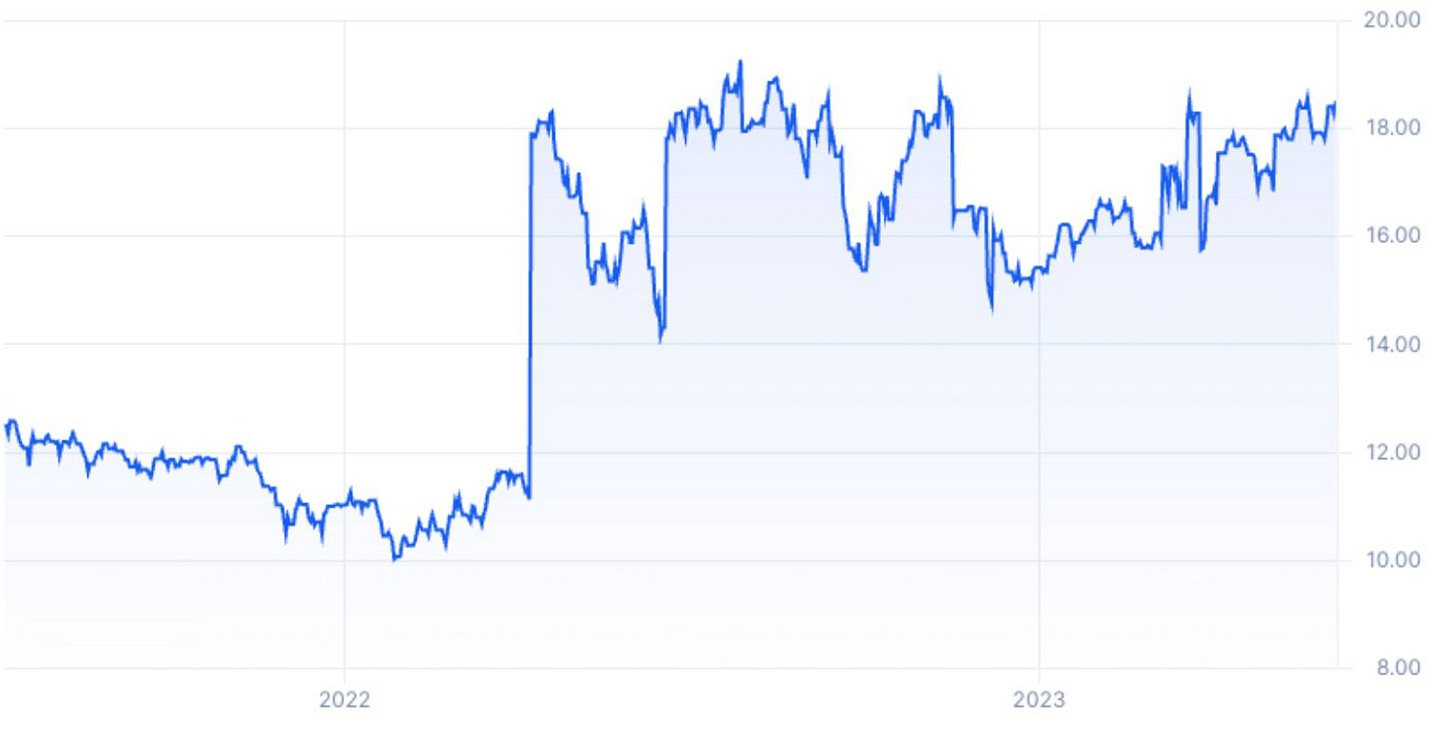Anduril - Forging the $8Bn Defense Tech Unicorn
Palmer Luckey reignited the VR industry when he sold Oculus to Facebook in 2014, now through his next venture Anduril he is bringing innovation back to defense technology.
Editor’s Note: Thank you to 62 new people who decided to subscribe to our newsletter, including investors and execs from Tiger Global, Bank of America, and a16z. Term Sheet Digest is a weekly newsletter for the Attack Capital community. If you are in the mood to read about private company stocks that are heating up in the secondary market and the biggest news around Silicon Valley, you are in the right place.
Anduril is a defense company centered around autonomous systems capable of monitoring all realms of war including air, space, land, and sea using AI and computer vision-powered operating systems to connect intelligent devices and hardware assets.
Prior to founding Anduril Palmer Luckey founded Oculus VR, which Facebook acquired in 2014 for $2Bn in cash and stocks. Trae Stephens of Founders Fund was looking to fund a defense tech company when he met Palmer Luckey who shared his passion around National Security.
Luckey was fired from facebook for donating $10k to a pro trump organization. Following Luckey’s firing, Stephens pitched his idea for a modern defense contractor and they began working on Anduril.
Anduril raised $1.5Bn its last round in December 2022 from Founders Fund, Lightspeed, a16z, General Catalyst among others, in the secondary ,markets the company’s stock is trading around $18 a share since its last round.
Born and raised in Long Beach, California, Luckey was homeschooled by his mother and had a deep interest in electronics engineering. He was attending college when he was just 14-15 and was experimenting with electronics projects like railguns, Tesla coils, and lasers on the side. He also worked as a part-time engineer in the Mixed Reality Lab (MxR) at the Institute for Creative Technologies (ICT) at the University of Southern California as part of a design team for cost-effective virtual reality systems for BRAVEMIND, a U.S. Army Research Laboratory effort to treat veterans suffering from PTSD.
Luckey was 16 when he began building VR headsets of his own design. He called his 6th-generation unit the "Oculus Rift," “ intended to be sold as a do-it-yourself kit on Kickstarter. He launched Oculus VR in April 2012 to facilitate the official launch of the Kickstarter campaign. His Kickstarter campaign caught the eye of several high-profile execs in the gaming industry and raised $2.4 Mn, or 974% of its original target.
The Facebook Billions
Ultimately Oculus was acquired by Facebook for $2Bn. Most people, including Palmer, would’ve thought this was the biggest thing he would achieve in life, but life had other plans. Palmer was fired from Facebook after he contributed $10K to a pro-trump organization, although Facebook denied any political motive behind his firing, the whole mood of Silicon Valley during Trump’s presidential campaign says otherwise. But he managed to negotiate a payout of more than $100Mn from Facebook after his untimely exit.
Valley’s Defense Contract Roots
In recent years, Silicon Valley has learned to take an apprehensive stance with pretty much anything to do with government, it's not even a Republican or a Democrat issue. Uproar regarding Google’s Project Maven in 2018 is a perfect example of this when thousands of Google employees protested a Pentagon contract that used the company’s artificial intelligence technology to analyze drone surveillance footage.
The last couple of years have also seen massive consolidation of defense tech contractors, which slows down the entire process of innovation, to say the least. Valley’s coldness regarding government and defense contracts is surprising when you consider that Silicon Valley’s roots are built from defense and other government contracts. It was in the 90s that the Valley shifted its focus to the Internet and started building consumer products for the masses. The ostracizing of government contracts created a vacuum in innovation in defense tech, which is a huge national security issue now and even bigger in the future.
Product Suite
Lattice OS: Lattice is at the center of Anduril’s product. The software system operates as a general command hub. It uses AI and computer vision to depict a view of the battlefield, which can be interacted with using a computer, tablet, or VR headset.
Force Protection: Anduril’s first product was a sentry tower placed on the US-Mexico border in 2017 to monitor illegal border crossings. Since then, Anduril has advanced its sentry towers to be applicable in different environments and scenarios.
Unmanned Aerial Systems: Covering the air domain, Anduril’s unmanned aerial systems fleet consists of two products: Ghost and Altius. Ghost is a drone bringing real-time intelligence, surveillance, and multi-mission reconnaissance capabilities. Ghost is easily assembled and is nearly silent, making it perfect for covert surveillance. ALTIUS is an unmanned aerial system that stands for an Agile-Launched, Tactically-Integrated Unmanned System. ALTIUS is designed to extend the reach and impact of operations.
Underwater Vehicles: Anduril rounds out its defense coverage in the sea with autonomous underwater vehicles. Dive-LD is capable of both defense applications and commercial applications. Given its flexible and unique architecture, Dive-LD is ideal for missions including underwater battlespace intelligence, surveillance, mine countering, anti-submarine warfare, and more.
Working the Administration
Although Anduril claims to work on National interest, which is a bipartisan issue, the company did play into the fears and policies of both the Trump and Biden administrations. The company launched Sensory Tower and focused on border protection during the Trump administration when border patrol was a heating issue, and the administration was desperate to find a solution to illegal border crossings. Although drones were always a focus of Anduril through their autonomous systems program, their focus was deepened when the Chinese drone manufacturing company DJI came under the US government’s radar, in March 2023, the US government completely banned the purchase of DJI drones.
Anduril also acquired Adranos, a manufacturer of solid rocket motors, through this acquisition, Anduril will become a merchant supplier of solid rocket motors to prime contractors delivering missiles, hypersonics, and other propulsion systems for some of the Department of Defense’s most important programs.
Palmer Luckey’s Flame of the West
Although Silicon Valley has brilliant engineers, due to the anti-establishment environment, starting a defense tech startup is not a task for the faint-hearted. You can move forward if you can deal with the constant hate speeches and barrages of tweets, articles, and pressure from investors and employees. Palmer Luckey’s firing from Facebook taught him a lesson regarding politics in the Valley and also brought out the sheer stupidity of it.
Surprisingly all the people who hated him are warming up to him, at least on the outside. He is the face of the Silicon Valley and American Defence Tech Partnership, a16z American Dynamism, and, more recently, American efforts in the Ukraine war.
Secondary Market Overview
After the war in Ukraine, Anduril stock is super hot in the macro sense. Most of its brand image has improved since it started supporting troops in Ukraine after the American public and the government realized the pace of innovation that startups like Anduril can provide compared to their tried and tested defense contractors. In the last two years, Anduril has raised around $1.9Bn in funding. Founders Fund, General Catalyst, a16z, LightSpeed, and Thrive are some of its largest backers. Due to the massive support from branded VC funds, its secondary market stock prices have soared whenever the stock is available; currently, it is trading at $18 a share.
Top Stories
Today Meta launched its Twitter clone - Threads, in just 4 hours since its launch 5Mn people signed up on the app, and in just 7 hours, it crossed the 10Mn mark.
Another Twitter clone Bluesky announced additional funding and its first paid service the company shared that it raised seed funds totaling $8 million.
SoftBank is backing Japanese robotics startup Telexistence, Tokyo-based Telexistence has raised $170 million (23 billion yen) in a Series B round of funding from SoftBank, Airbus Ventures, Monoful Partners, KDDI Open Innovation Fund, a fund set up by Foxconn and CTBC Financial Holdings, and Globis Capital Partners.
Please share this newsletter with your friends, family, and colleagues if you feel that it’ll add value to their lives - probably the best compliment we can get :)











